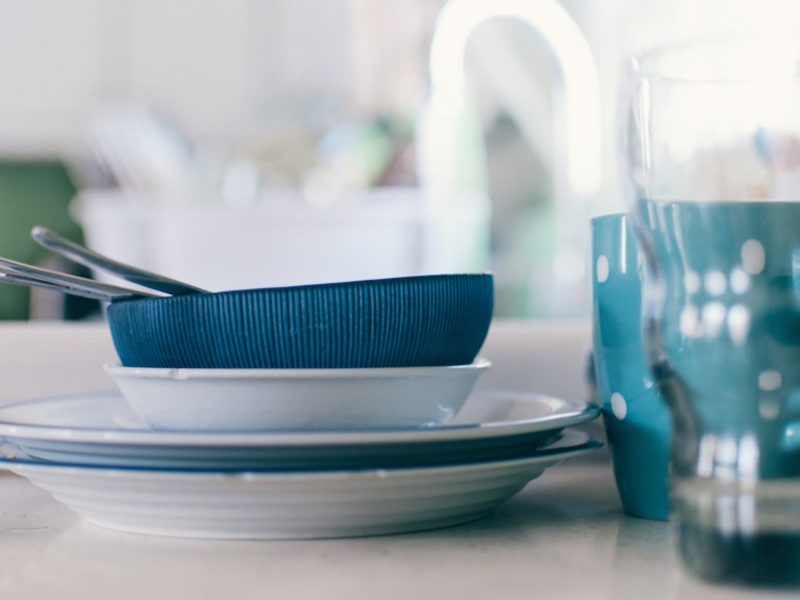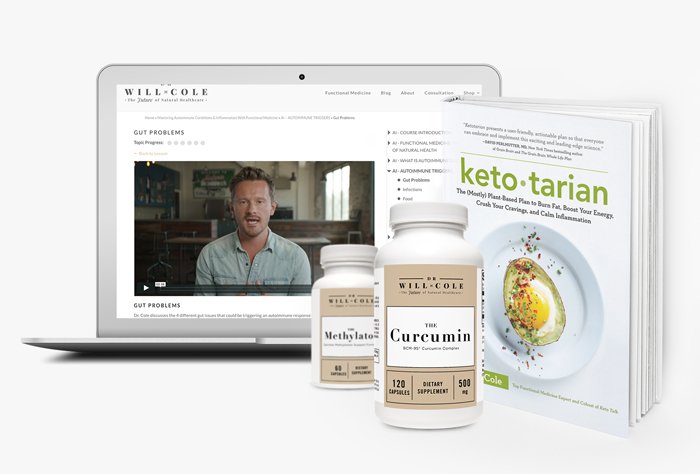Hazardous Household Items: What To Know About Their Labels, Contents + Healthy Alternatives

Go into your kitchen cupboards and take a look at all of the household products you have purchased over the years. What do you know about them? Sure, you know that you use them to clean different surfaces around your home, but have you ever taken a moment to look at their labels?
Decoding the Labels
Some companies list all of the chemicals in their products. But shockingly enough, there are many out there that don’t. WebMD says the Consumer Products Safety Commission requires labeling for household products like battery acid, drain opener, and cleaners.
The companies that make these products are required to list the ingredients that are known to be hazardous. They also need to include first aid information. The problem is, all other ingredients don’t need to be listed. This means that the products can include anything without the company mentioning them at all.
Many consumers feel if it’s being sold in a reputable store that it’s gone through a review stage. Since that isn’t the case, you could be spraying dangerous chemicals into your home’s air without you even knowing it.
When purchasing products, look for labels that read “non-toxic,” “petroleum-free,” and “biodegradable.” Stay away from products with labels that state they have a fragrance without having any information about what the scent is made of.
The Household Product Labeling Acts
All information stating what is actually in the product you’re using can be a lifesaver for you and your family. This information isn’t on the bottles for show; it’s there to let you know what’s in the product and how it can be harmful. Over the past few years, two bills have been proposed as a way to make the label information clearer and safer for users.
In the summer of 2009, U.S. News says Senator Al Franken introduced a bill to help prevent families from getting hurt while using common household items. Franken says a chemical that is deemed as “safe” one day may be listed as “dangerous” another.
“How many times have you heard on the news or read in the paper about a new drug or chemical that has been recently linked to health or environmental hazards? It happens all the time. An ingredient that a company claims is ‘perfectly safe’ today could be reclassified as ‘dangerous’ tomorrow. And an ingredient that is safe for most people could be a major irritant for a child with asthma. Eventually, I hope that manufacturers will take preemptive action and eliminate potentially harmful chemicals from their products. In the meantime, this legislation is a common sense step in the right direction,” Franken said.
Unfortunately, eliminating all potentially hazardous chemicals from products isn’t in the cards right now. By having all of the chemicals and information thoroughly listed, people can hopefully make judgement on their own.
The House of Representatives also introduced a bill to combat potential issues stemming from household label issues. Representative Steve Israel feels that it’s important to have extensive information listed following major issues with the tobacco industry. Rep. Israel says the industry hid a lot of basic information about the chemicals that were being used in our workplaces and homes.
Products covered by these two acts would include air fresheners, floor and furniture polish, drain cleaners, laundry detergent, dryer sheets, and other similar products. Dangers associated with these products include asthma and respiratory problems.
Toxic Household Products You Should Evict
Everyday Health compiled a list of a few commonly-used household items that you need to toss ASAP.
1. Air Fresheners
Candles, plug-in scents, and other air-freshening devices can actually be pretty harmful. These products can contain chemicals called phthalates, which can cause problems for the reproductive system. If you’re looking for a safe air-freshener, pick up a candle made with essential oils or use fresh flowers as an alternative.
2. Fabric and Upholstery Protection Sprays
If you’re unfamiliar with what upholstery and fabric protection sprays actually do, they essentially create a plastic barrier over your furniture. Over time, this plastic will wear off and will be released into your home environment. Rather than trying to protect your furniture from stains, clean them as they happen.
3. Plastic Food Containers
While this one isn’t necessarily a chemical, it’s a potentially harmful product that we use on a regular basis. Have you ever noticed your plastic containers turning cloudy after a few cycles through the dishwasher? That happens because plastic breaks down and can actually release dangerous chemicals into your food. Just like air fresheners, many of the containers we use contain phthalates which can disrupt your endocrine system. Use glass containers to store and transport your food instead.
Create Your Own Household Cleaning Products
Like using glass containers or essential oils as a safer alternative to dangerous products, you can also create your own household cleaning products. Good Housekeeping says all of these DIY products can be made using very few ingredients.
To create an all-purpose cleaner and deodorizer you’re going to need four tablespoons of baking soda and one quart of warm water. All you need to do is pour the solution on a clean sponge and start wiping. You can use this mixture to clean countertops, appliances, and even the inside of your refrigerator. It also does a great job of shining stainless steel appliances and sinks.
If you need something to remove tough stains, take half a lemon and a half cup of borax. You can find borax for about $8.00 in the laundry detergent aisle. Take the lemon and dip it into the borax, then use the lemon to scrub away any rust stains. Don’t use this cleaner alternative on marble or granite, though, you’ll run the risk of ruining those surfaces.
Many household items are essential for everyday life, but do you know what you’re using is actually made of? Always read the labels on the back of any product before use. If you’re unsure of what is in the product or if what you’re using is actually safe, try homemade alternatives to nip toxins in the bud.
As one of the first functional medicine telehealth clinics in the world, we provide webcam health consultations for people around the globe.
Photo: Stocksy
Start Your Health Journey Today
FUNCTIONAL MEDICINE CONSULTATIONS FOR PEOPLE AROUND THE WORLD
Shop This Article
Purchase personally curated supplements
and Dr. Will Cole’s books!

The information on this website has not been evaluated by the Food & Drug Administration or any other medical body. We do not aim to diagnose, treat, cure or prevent any illness or disease. Information is shared for educational purposes only. You must consult your doctor before acting on any content on this website, especially if you are pregnant, nursing, taking medication, or have a medical condition.
Our articles may include products that have been independently chosen and recommended by Dr. Will Cole and our editors. If you purchase something mentioned in this article, we may earn a small commission.

WRITTEN BY GUEST AUTHOR TOM SPINA
REVIEWED BY DR. WILL COLE | COLE NATURAL HEALTH CENTERS
Dr. Will Cole, IFMCP, DNM, DC, leading functional medicine expert, consults people around the world via webcam and locally in Pittsburgh. He received his doctorate from Southern California University of Health Sciences and post doctorate education and training in functional medicine and clinical nutrition. He specializes in clinically researching underlying factors of chronic disease and customizing a functional medicine approach for thyroid issues, autoimmune conditions, hormonal imbalances, digestive disorders, and brain problems. Dr. Cole was named one of the top 50 functional medicine and integrative doctors in the nation and is the best selling author of Ketotarian and The Inflammation Spectrum.
Subscribe to the Newsletter
FREE FUNCTIONAL MEDICINE GUIDE REVEALING
14 WAYS TO DETOX YOUR LIFE
Get FREE access to this exclusive guide + subscriber-only giveaways, healthy recipes + my plant-based keto food guide.



